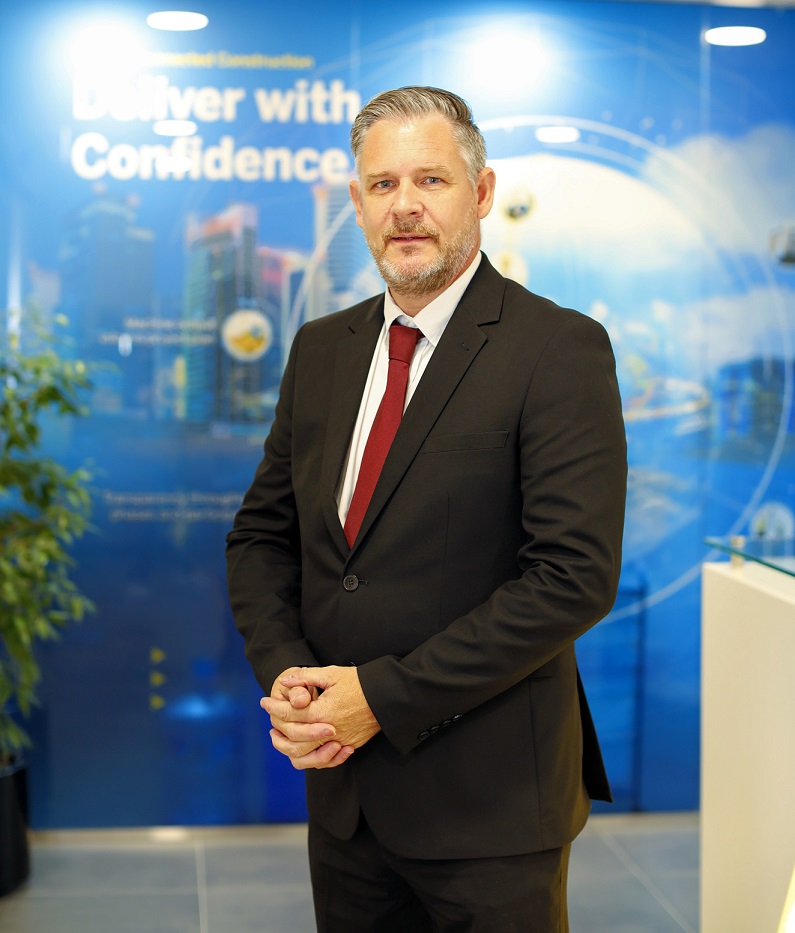Trimble, a leader in construction technology, recently released its sustainability report for 2021, which outlines the company’s objectives to lower greenhouse gas emissions and achieve a net-zero future. The company’s emission reduction goals for the Science Based Targets (SBTs) submission were approved this year.
The Sustainability Report highlights the company’s efforts and accomplishments in regard to its Environmental, Social, and Governance (ESG) facets. It strongly emphasises the company’s commitment to sustainability, end-user industry solutions, community philanthropy through the Trimble Foundation Fund, employee engagement and development, as well as the Diversity, Equity, and Inclusion (DEI) initiatives.
It is also observed that new regulations are expected to be introduced as a result of the increased government emphasis to lessen the effects of climate change, that may impact project completion. However, the report highlights how Trimble’s solutions can be used to develop projects sustainably and guarantee timely completion. The report underscores Trimble’s commitment to upholding sustainable construction standards and prioritising the use of construction technology in the sector. This was further reinforced by the fact that Trimble’s Science Based Targets (SBTs) submission was approved this year. These targets, which promote emission reductions across Trimble’s operations and value chain, will expedite the company’s efforts to combat climate change in the Middle East and around the world.
Paul Wallett, the Regional Director of Trimble Solutions Middle East and India, said: “Since 1978, Trimble’s industry-specific solutions have helped businesses accomplish more, while promising a lower environmental impact. The Middle East is one of the area’s most susceptible to climate change, and the building and construction sector may be one of the major contributors to this phenomenon. As the need for sustainability becomes more urgent in the Middle East, we remain committed to acting quickly to leverage opportunities that protect the environment and make society more resilient, productive, and connected. Our Sustainability Report details this vision, as well as our solutions that meet highest sustainability standards and help develop sustainable projects.”
Trimble’s integrated solutions are developed to help reduce fuel consumption, lower greenhouse gas emissions, and improve efficiency, accuracy, and reliability for heavy earthmoving equipment, thereby resulting in faster job completion.
The company has recently introduced the latest versions of its Tekla® software solutions for constructible Building Information Modeling (BIM), structural engineering and steel fabrication management: Tekla Structures 2022, Tekla Structural Designer 2022, Tekla Tedds 2022 and Tekla PowerFab 2022. Aligned with Trimble’s dedication to sustainable workflows, Tekla Structures and Tekla Structural Designer offers dynamic embodied carbon calculation functionality, for both the design and detailing processes, through an Embodied Carbon Calculator. Structural engineers can use this visual and dynamic calculations tool to compare different design options and their respective carbon loads. By incorporating sustainable practices into the design process, Trimble lays the foundation for achieving a net-zero future across all its projects, aiming to promote sustainability in the industry.

